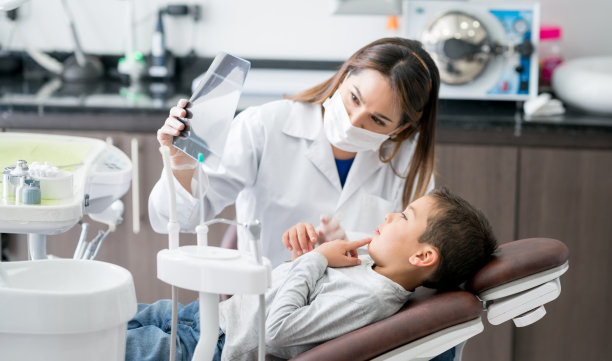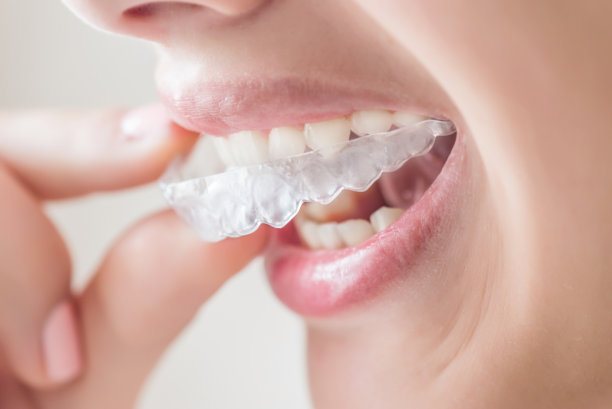Summary: Dental filling treatments are vital for restoring your oral health and preventing future complications. However, following essential precautions before and after the procedure is crucial for ensuring optimal recovery and maintaining your well-being. This article delineates four key areas: pre-treatment consultations, dietary modifications, post-treatment care, and regular dental check-ups. Each section will provide clear guidelines and recommendations to empower patients to navigate their dental journey effectively. By adhering to these precautions, individuals can enhance their recovery experience and promote long-term oral health.
1. Importance of Pre-Treatment Consultations

Before undergoing dental filling treatment, it is imperative to schedule a comprehensive dental consultation. This initial meeting allows the dentist to assess the extent of the cavity and determine the most suitable filling material. Understanding your dental history, including allergies and previous treatments, is vital for personalized care.
During the consultation, patients should feel encouraged to ask questions about the procedure. Discussing potential risks and expected outcomes helps demystify the filling process and reinforces patient confidence. By doing so, individuals can prepare mentally and emotionally for what lies ahead.
Moreover, it is essential to communicate any dental anxiety or concerns to the dentist. Acknowledging these feelings will enable the dental team to provide additional support, ensuring a more comfortable experience. This pre-treatment dialogue enhances the patients sense of control and readiness.
2. Recommended Dietary Modifications
Dietary modifications play a significant role in preparing for dental filling treatment. Patients are advised to avoid hard or crunchy foods in the days leading up to the procedure to minimize stress on the affected tooth. Soft, easy-to-chew options such as yogurt and smoothies can help maintain nutrition without causing further damage.
In addition, it is best to refrain from consuming foods high in sugar, especially right before the appointment. Sugar can exacerbate cavity issues, increasing the likelihood of complications during the filling process. A balanced diet rich in vitamins and minerals will support the overall health of the teeth and gums.
After the filling treatment, it is crucial to maintain similar dietary caution. Avoiding hot, cold, or overly spicy foods for at least 24 hours allows the tooth to heal and acclimate to the filling material. Gentle eating aids in a smoother recovery without discomfort.
3. Essential Post-Treatment Care Guidelines
Post-treatment care is just as important as pre-treatment steps. After receiving a dental filling, patients may experience residual numbness from local anesthetics. It is advisable to avoid chewing on the treated side until full sensation returns to prevent accidental injury to the tongue or cheek.
Maintaining oral hygiene following the filling is critical for preventing further decay. Gentle brushing and flossing around the filled tooth help ensure that plaque and food particles do not accumulate. Typically, dentists recommend waiting at least 24 hours before resuming vigorous dental routines.
Additionally, if patients experience unusual discomfort or sensitivity beyond a few days, they should consult their dentist immediately. Early intervention can address potential issues and ensure the filling adheres correctly, maintaining its effectiveness in the long term.
4. Significance of Regular Dental Check-Ups
After completing a dental filling treatment, scheduling regular dental check-ups is vital for maintaining optimal oral health. Routine visits allow the dentist to monitor the filled tooth and ensure it remains healthy and free from future cavities. Regular examinations help to identify potential problems before they escalate.
Moreover, ongoing dental care provides an opportunity to receive personalized advice on oral hygiene practices and diet. These tips can help prevent future dental issues by fostering better habits tailored to individual needs.
Finally, establishing a regular dental visit schedule reinforces the significance of oral health in overall well-being. Building a strong relationship with your dentist ensures ongoing support for maintaining a healthy smile.
Summary:
In summary, dental filling treatments can significantly enhance your oral health when paired with essential precautions before and after the procedure. These include thorough pre-treatment consultations, informed dietary choices, diligent post-treatment care, and routine dental check-ups. By actively engaging in these practices, patients can ensure a smoother recovery while reducing the risk of future dental complications.
This article is compiled by Vickong Dental and the content is for reference only.
Vickong Dental
Vickong Dental is a large medical group established in Hong Kong in 2008 by professors from well-known medical universities in Guangdong and Hong Kong, as well as medical doctors from key national '985' universities (including Master's supervisors and senior professors). The chain of branches brings together expert dentists with PhDs and Master's degrees from Hong Kong and Mainland China, committed to providing high-quality dental treatment.
"Vickong Dental Practices the University Motto of 'Healing and Serving Society,' with a Stable Operation for Sixteen Years. It Has Been honored with Hong Kong Enterprise Leaders's Choice,' and is a Global Trusted Implant Center for the Nobel Implant System. Recommended by Hong Kong Metro Broadcast and Guangdong Television, it Serves Customers from Over Thirty Countries and Regions, Gaining the Trust and Favor of Citizens from the Guangdong-Hong Kong-Macau Greater Bay Area and Surrounding Cities.

Thousands of customers' unanimous praise
The most recognized and highly recommended dental service by customers in the Guangdong-Hong Kong-Macau Greater Bay Area
We Ensure You Receive Detailed Care and Attention Here
Hong Kong standards, Shenzhen prices, Your Trusted English-speaking dentists

Vickong Dental Medical-Grade Instrument Disinfection Process
Vickong Dental Medical-Grade Instrument Disinfection Process

Vickong Dental Chain: A Warm and Comfortable Environment for Treatment






Appointment Hours

Q&A
Why choose Vickong Dental?
Vickong Dental practices the university motto 「Medicine to Benefit Society」, with each branch bringing together highly qualified dentists with doctoral and master’s degrees from Hong Kong and the Mainland, and has maintained seventeen years of steady operation。Recipient of 「2024 Hong Kong Enterprise Leaders Brand」, 「2025 Hong Kong Enterprise Leaders Brand」, a Nobel Biocare Global Trusted Implant Center, and a brand recommended by Metro Radio Hong Kong and Guangdong TV。
To date, we have served customers from more than thirty countries and regions,earning exceptionally high word-of-mouth recognition and trusted recommendations from residents across the Guangdong-Hong Kong-Macao Greater Bay Area and surrounding cities
We have eight major branches in Zhuhai、Shenzhen,and a consultation and service assurance center in Hong Kong,so you can book a free consultation at any time for any questions,which is very reassuring.
If I do not accept the quotation after the CT scan, will I be charged??
No! As long as the actual treatment has not started, you will not be charged any fees.
Will there be any additional charges during the treatment process?
No, there won’t be any additional charges. Before treatment begins, we will clearly explain the treatment plan and its corresponding fees. Only after the patient agrees and signs the consent form will we proceed with the dental service.
Can I pay in Hong Kong dollars?
Yes. Vickong Dental accepts payment in Hong Kong dollars. The amount will be converted based on the exchange rate of the day, and the applicable rate will be clearly communicated to you in advance.
Can I reschedule my appointment at any time?
Yes. Please contact us via **WeChat** or **WhatsApp** as early as possible, providing your original appointment time and details, along with your preferred new date and time slot for rescheduling.













